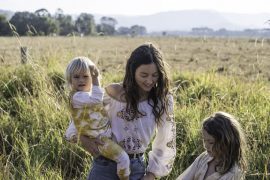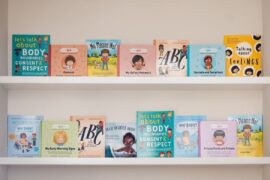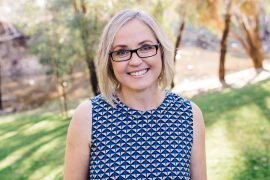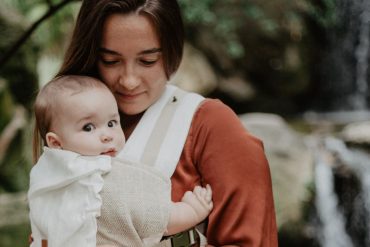Conceptualising Matrescence
Matrescence is a relatively new field of study and practice. Anthropologist, Dana Raphael coined the term in 1973, but it wasn’t until 2008 that the world took notice. Dr Aurelie Athan from Columbia University revived the term matrescence through education, theory, and practice. Dr Alexander Sacks created further awareness through her NY Times article and TEDTalk on the topic.
For ease, I have provided some examples of matresence by the core domains below.
We must recognise that a woman is not an island. She is transforming under extreme environmental conditions such as:
- Steep learning curve: learning how to mother when there is no handbook that takes into consideration the unique woman, baby, family and many other parts of the motherhood system. This may be the first time that the woman has felt incapable and out of control.
- Little to no village to support her with learning how to mother, and also baby care. A sense of isolation.
- Relentless baby care: the baby’s needs run over the full 24-hours, seven days per week.
- Chronic exhaustion: the debilitating effects of sleep deprivation.
- Invisible and often devalued work that she performs domestically.
- Diverse mothering experiences (e.g. sleep, feeding, baby personality and sensitivity) can result in a mother feeling like she is doing something wrong when comparing her experience to others. And, the curated social media feed amplifies comparison and suffering.
Matrescence is counter-cultural.
In my conversations with Dr Aurelie Athan, she has talked about matrescence being counter-cultural: a process of becoming rather than achieving. It requires time and patience. It has suffering inherent within it despite motherhood being portrayed as a sentimental and moral pursuit with constant messages such as ‘enjoy every moment!’.
Of course, motherhood has many beautiful moments, times where we feel our heart may burst with love, and times of bliss like no other.
AND, it also brings great suffering. It is painful when our sense of self is disintegrating and in the period before we have evolved to our new identity. It can be shocking and even excruciating to both love and hate motherhood at different times. We can internalise feelings of anger and resentment that naturally arise as evidence that there is something wrong with us or our experience.
Our culture says that unless you are happy and positive, there’s something wrong with you that needs fixing. And, if you are feeling sad, angry or suffering in some other way, we give the message that you are simply just one solution or positive affirmation away from being your ideal self.
How can we support matrescence?
What a mother really needs is to be emotionally held with mindfulness and compassion. She needs non-judgmental, compassionate support that is mother and baby-centred – that prioritises the wellbeing of both. She needs people who believe in her, who feel she knows the answer and just needs help to access it. She needs people around her who can normalise the suffering that goes with motherhood without needing to fix her or her challenges. She needs a community of mothers around her who speak authentically. She needs to be told about matrescence.
She needs to know that motherhood is oppressive and confusing at times alongside the joy and meaning and purpose. And, through her matrescence journey, she will be born into a new sense of self. One that is more resilient, compassionate, humble, mindful and connected than she ever thought possible.
Like a teenager may dream of the simplicity of being a child again, a mother may dream of the simplicity of being a woman again.
But, just as an adult doesn’t want to return to being a child, a mother, and the woman she has become, would not want to go back to who she was before.
I would like to acknowledge and give gratitude to Dr Aurelie Athan for her incredible dedication to mothers and matrescence and for her ongoing support of my learning about this important but little-known topic. Dr Aurelie Athan has created the conceptual model of matrescence, which incorporates biological/psychological/social/political/spiritual domains to help women make sense of their motherhood experience.
Bibliography
Athan, Aurelie. Matrescence: Education, Theory and Practice. Accessed 21 September, 2020. https://www.matrescence.com
Athan, Aurelie and Heather Reel. 2015. Maternal Psychology: Reflections on the 20th Anniversary of Deconstructing Developmental Psychology https://journals.sagepub.com/doi/10.1177/0959353514562804 (2015)
Athan, Aurelie. 2013. Motherhood as Opportunity to Learn Spiritual Values: Experiences and Insights of New Mothers.
Butterfield, Elizabeth. 2011. “Days and Nights of a new Mother”. In Motherhood – Philosophy for Everyone: The Birth of Wisdom, edited by Sheila Lintott. Chichester: John Wiley and Sons Ltd.
Ellison, Katherine. 2006. The Mommy Brain: How Motherhood Makes Us Smarter. New York: Basic Books.
Lintott, Sheila. 2011. Motherhood – Philosophy for Everyone: The Birth of Wisdom, edited by Sheila Lintott. Chichester: John Wiley and Sons Ltd.
McKay, Sarah. 2018. The Women’s Brain Book: The Neuroscience of health, hormones and happiness. Sydney: Hachette Australia.
McKay, Sarah. 2020. The Pregnant Brain: Preparing the Mind for Motherhood. https://drsarahmckay.com/the-pregnant-brain/
Miller, Tina. 2005. Making Sense of Motherhood: A Narrative Approach. Cambridge: Cambridge University Press.
O’Reilly, Andrea. 2007. Maternal Theory: Essential Readings. Toronto: Demeter Press.
Rich, Adrienne. 1995. Of Woman Born: Motherhood as Experience and Institution. United States: W. W. Norton.
Ruddick, Sarah. 2002. Maternal Thinking. Boston: Beacon Press.
Serrallach, Oscar. 2018. The Postnatal Depletion Cure. London: Sphere.
Thurer, Shari. 1991. The Myths of Motherhood: How Culture Reinvents the Good Mother. United States: Penguin.
Originally published here.
Belinda Haan is a writer, advocate, and facilitator focused on re-writing the motherhood experience. She uniquely blends the best of psychology and heart to support women in their transition into motherhood. She is the founder of The Motherhood Gathering, which provides a loving container for women as they navigate the joy and full catastrophe of early motherhood. You can follow Belinda on Facebook, Instagram and LinkedIn.










